Overview
The Enhanced Clinical Practice Apprenticeship has been developed for Allied Health Professionals to offer post-registration opportunities to support your development as a healthcare professional. Enhanced Clinical Practitioners are qualified health and social care professionals who are working at an enhanced level of practice with specific knowledge and skills in a field of expertise.
The course is mapped against the Allied Health Professions Enhanced Level Practice schemas and the IfaTE Enhanced Clinical Practitioner Apprenticeship standard.
This course and apprenticeship are aligned to priorities addressed in the NHS Long Term Workforce Plan. The course has been mapped against the Enhanced clinical Practice schema for 4 professions which are osteopathy; physiotherapy; dietetics; and occupational therapy. The course is part-time and delivered through blended learning. This will include a mixture of face-to-face sessions, online sessions, practice-based learning and asynchronous material via our virtual learning environment (Moodle). In addition, tri-partite reviews will be held four times a year between the apprentice, apprenticeship tutor, and workplace supervisor.
Course Details
What will this course entail
The aims of this apprenticeship are mapped directly against the NHS England (2024) Allied Health Professions Enhanced Level Practice Schemas with Model Curricula. The curricula framework is set out across eight core Enhanced Level Practice domains which are aligned to the four pillars of professional practice. Each profession-specific curriculum uses these as a foundation, with the inclusion of additional profession-specific domains to reflect Enhanced Practice within that profession. The course aims are taken from the enhanced level practice domains: clinical practice, leadership, education and research. The content of the units is underpinned by five main areas:
- Advancing your clinical knowledge and skills within your scope of practice
- Encourage proactive leadership within your team and system
- Facilitate education practice
- Develop evidence-based practice
- Support autonomous professional practice
Who is this course for?
This is a post-registration course for Registered Allied Health professionals from 4 professions: Osteopathy; physiotherapy; dietetics; and occupational therapy. You will be employed in a role relevant to the apprenticeship or be recruited into a new role that aligns with the apprenticeship focus. You will need to be working in a suitable role for at least 30 hours per week and have support from your employer. You will have usually a minimum of two years’ experience after qualification as an AHP.
How is this course structured?
The course consists of one core unit, and two optional units depending on your profession and clinical focus. For the first unit you will complete (EPA7001) which is generic to all AHP schema and covers the three non-clinical pillars of practice (education, research and leadership). The formative and summative assessment tasks allow you to contextualise the unit to your profession and clinical practice speciality.
The second unit is a clinical unit and available in two versions, reflecting your clinical focus, with one version for dietetics, occupational therapy and non-MSK practitioners (EPA7002) and another musculoskeletal version for MSK physiotherapists and osteopaths (ECP7003/EPA7003).
The final unit you will complete is pathway-specific with five pathways offered, which are:
- Acute, urgent and emergency care
- Mental health
- Primary, community and social care
- Frailty and ageing
- Children and young people
These units are multi-professional units where you will learn with people from other professions. You can select the pathway that suits you.
Once you have completed the three units and obtained 60 credits you will work towards the gateway for the End Point Assessment, which will only start once your employer is content that you are consistently working at or above the level set out in the occupational standard, so you are deemed to have achieved occupational competence. The EPA has two elements of assessment. Assessment 1 is a Quality Improvement Project. The project’s subject, title and scope in the form of a proposal briefing will need to be completed and submitted to the EPAO and this will be signed off within a maximum of 3 weeks of the gateway being passed. The quality improvement proposal’s subject, title and scope will be agreed between the employer and the EPAO at the gateway.
Assessment 2 is a professional discussion, which is underpinned by a portfolio of evidence that you will complete during the on-programme period of the apprenticeship. The portfolio should contain evidence related to the KSBs that will be assessed by this assessment method. The portfolio of evidence will typically contain 12 discrete pieces of evidence mapped against the KSBs.
How you will be assessed
You’ll be assessed through a combination of:
- Portfolio of Evidence and critical narrative
- Objective Structured Clinical Examination (OSCE)
- Poster Presentation and Q&A
Placement Opportunity
To be able to apply for this course you must already be employed in a suitable clinical area that will support your apprenticeship. If, to complete your apprenticeship you will require placement in a different clinical area, this will need to be negotiated with your employer.
Study Time
You will need to be working a minimum of 30hrs per week ideally. Your employer is required to support you to maintain a minimum of six hours per week off the job, the may be spent attending classes at the University or in placement or self-directed study.
Career Prospects
Enhanced practice can be a precursor or preparation for advanced practice, equally it can be a destination career where people want to stay. The next steps for ECPs may be a transition to advanced practice and this course is mapped against our Advanced Clinical Practice course.
Unit Breakdown
Fundamentals of Enhanced Clinical Practice for AHPs 
Fundamental to practice at enhanced level (and all levels of practice) is practitioners having and exercising a developed understanding of their personal scope of practice at any one point in time and the limits of their scope and competence, and therefore knowing when they need to seek advice and guidance to ensure that patient safety is upheld.
This first unit is designed around three pillars of practice which are fundamental to the development of enhanced practice: leadership, education and research.
Clinical Assessment for Enhanced Practice 
This unit aims to support and facilitate building and further developing your competence and capability at an enhanced level in history taking, assessment and examination.
The unit includes advancement of human life sciences knowledge and understanding, particularly anatomy and physiology, to identify causes, signs and symptoms and impact of physical and mental health conditions to underpin assessment and diagnosis of individuals.
It focuses on holistic assessment using personalised approaches to care and therapeutic communication for consulting with individuals and their carers/families.
Clinical Assessment for Enhanced Musculoskeletal Practice 
This unit aims to support and facilitate building and further developing your competence and capability at an enhanced level in history taking, assessment and examination focused on musculoskeletal care.
The unit includes advancement of human life sciences knowledge and understanding, using the application of anatomy, biomechanics, pathophysiology, and psychosocial factors within assessment and diagnostic processes, therefore supporting you to develop your capability in providing interventions and utilizing appropriate equipment within your scope of practice.
The unit will enable you in the delivery of person-centred care, promoting health and well-being, and demonstrating initiative and creativity in finding solutions to problems.
Through the unit you will be supported to develop the skills which enable a higher degree of autonomy and responsibility with a depth of practice to consistently assess and manage complex patients appropriately.
Enhanced Practice in Acute, Urgent and Emergency Care 
This unit aims to help you to manage acute and long-term conditions in acute, urgent and emergency settings, utilising appropriate clinical assessments to respond flexibly to patients’ current and ongoing needs.
This unit aims to provide you with the knowledge and skills to lead appropriate reassessment, request and interpret diagnostics within your scope of practice and setting, and lead ongoing management of acutely unwell patients.
This unit will cover utilising appropriate technology and interventions that is aligned to the specific needs of the person and their context of care, developing personalised management plans, and enabling patients to make informed choices about their care.
Enhanced Practice for Mental Health Services 
This unit aims to support you to identify, assess and manage patients who present with a range of mental health issues.
The unit is designed to support you to develop enhanced clinical reasoning skills, selecting and evaluating evidence from a range of sources to develop management plans that incorporate effective use of therapeutic interventions to promote mental health and wellbeing in your patient caseload.
At the end of this unit, you will be able to assess patients, identify risk factors and red flags and to work with the multidisciplinary team to ensure patients with mental health issues are appropriately assessed and cared for within the service and your scope of practice.
You will be able to develop your skills and knowledge to a level of practice that enables you to work in partnership with patients and carers/families, facilitating informed choices about care and treatment interventions, as part of holistic care provision within their own service.
This will include recognising referral and signposting processes to appropriate mental health and / or psychological practitioners, social care or voluntary sector services for ongoing management and care.
Enhanced Practice for Primary, Community and Social Care 
This unit aims to support experienced practitioners to develop skills in integrating relevant patient data through appropriate and systematic history taking, physical examination and investigations to examine and diagnose patients with a wide range of presenting conditions across primary, community and social care settings.
At the end of this unit, you will be able to identify, select, and apply a range of assessment techniques to consider the holistic needs of people, utilising appropriate tools and techniques.
Within this unit, you will also explore personalised approaches to patient care that value co-production and shared decision making with service users.
You will have the opportunity to develop management plans, considering the circumstances, priorities, preferences, risks and benefits for patients. You will draw on your understanding of local service provision and relevant guidelines to support your decision making.
You will learn to monitor changes in response to treatment, using relevant outcomes measures, proactively managing risk.
Within this unit, you will be encouraged in the development of your skills in condition management through intervention, self-management, health promotion and behaviour change.
Enhanced Practice in Frailty and Ageing 
This unit aims to support and further develop your knowledge, competence and capability of supporting older adults at an enhanced level.
Within this unit, you will explore the complexity of ageing, including the impact of wider determinants of health.
You will gain understanding of assessment, investigations, legislation and professional guidance.
Within this unit, you will use enhanced clinical assessment skills to recognise when an individual is living with frailty, contributing to a comprehensive geriatric assessment.
You will gain skills in recognising multisystem conditions, and proactively mitigate individuals’ risk of deterioration.
This unit also allows you to explore relevant interventions, sources of health promotion, to identify and recommend relevant treatment and personalised care.
Enhanced Practice in Children and Young People’s Services 
This unit will provide you with knowledge and understanding of typical and atypical development, physical and social milestones to distinguish between healthy presentations and the likely presence of pathology.
At the end of this unit, you will be able to undertake specialist assessments and interventions, drawing on expert understanding of the bodily structure and function.
This unit will provide you with a baseline to understand and apply knowledge relating to an array of complex health conditions, across a variety of body systems, specific to children and young people.
Across the unit, you will explore factors that impact well-being, activity, and participation at different ages and stages of development. This will include the impact of health inequalities and social determinants of health.
You will have the opportunity to develop and promote intervention plans in collaboration with patients and families, in collaboration with other professionals to develop interdisciplinary management plans.
Entry Requirements
What qualifications do I need? 
What qualifications do I need?
You are required to have a recognised degree and/or professional qualification as an allied health professional (physiotherapist; osteopath; dietitian; or occupational therapist) The minimum entry requirement is a 2:2 degree in an appropriate subject area.
You must have registration with the appropriate professional regulatory body, with no restrictions to your practice. You must be working clinically in a patient facing role with the opportunity within practice to work at an enhanced level within your employment. You must have agreement from employers to support, with respect to time and opportunity, both in the workplace setting and at the University.
Is there anything else that’s required? 
Is there anything else that’s required?
In addition, apprenticeship funding comes with the following requirements:
- You must be employed for a minimum of 30 hours per week.
- You must also have evidence of English and Maths at Level 2 (Grade C/4 or above) or equivalent prior to the end-point assessment.
International registrants who are employed and have relevant visas can access apprenticeship programmes and therefore there should be no additional entry requirements .
If you’re not sure about anything listed here, talk to our Apprenticeship team by emailing apprenticeships@aecc.ac.uk complete the form below or call us on 01202 436200 and we’ll be happy to answer any question you have.
For more information about our admissions policies and procedures, including our Admissions Complaints and Appeals Policy, see latest policies.
International Students 
International Students
For further information on English language requirements, please see the dedicated English language requirements page.
More information on permission to study in the UK can be found on our Visas and immigration page.
For more information about our admissions policies and procedures, including our Admissions Complaints and Appeals Policy, please see our latest policies.
Evidence of prior learning 
Evidence of prior learning
At interview you undertake a skills scan, where this identifies relevant prior academic learning and experience, relevant to the course learning outcomes, consideration will be given to recognition of this prior learning. Prior learning will be reviewed to ensure it meets the learning needs of the course and meets the learning outcomes of any units where exemption is requested.
Still have questions about applying?
Register your Interest
Register your Interest / Enquiry 
Enhanced Clinical Practice Apprenticeship webinars
Join us online for a one of our webinars and find out more about this new apprenticeship.
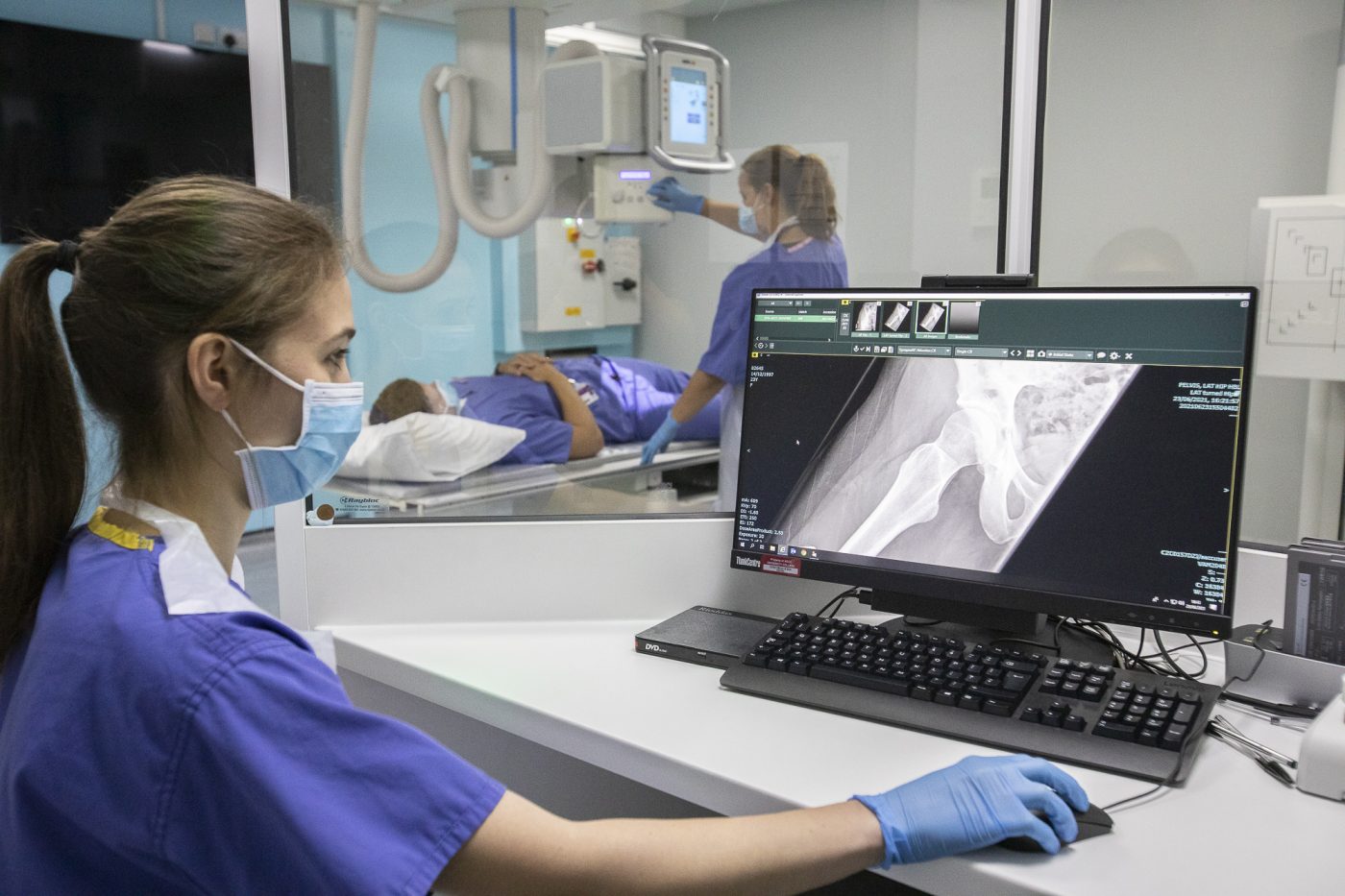
Why choose Health Sciences University
There are many benefits to studying at Health Sciences University, from our expertise and history in teaching health sciences, to our state-of-the-art facilities, on-site clinical training, and of course our location on the beautiful Bournemouth coast.
Latest News
Discover and read all the latest news, press releases and happenings here at Health Sciences University.
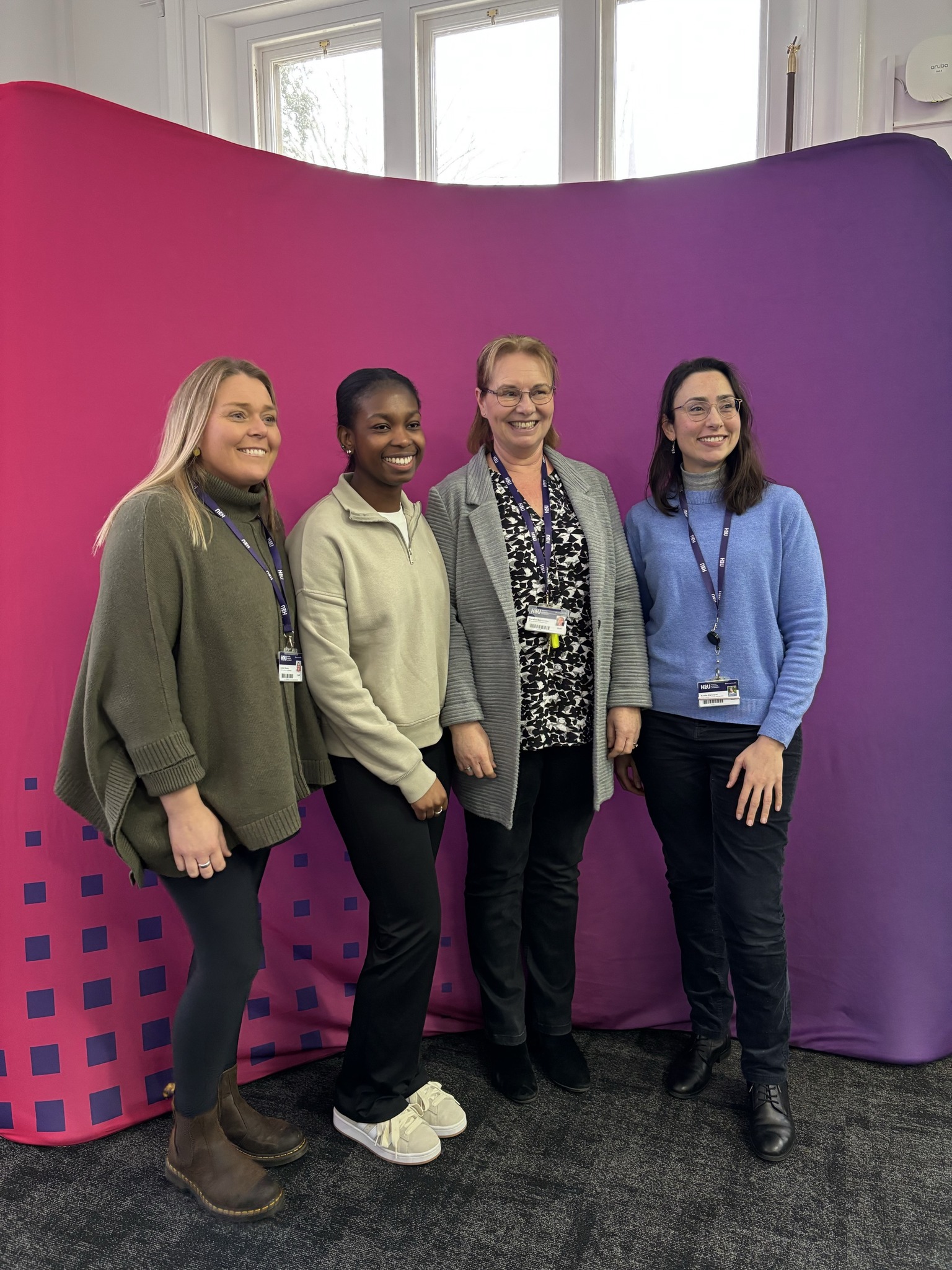
Health Sciences University (HSU) recently hosted a thought-provoking panel discussion in celebration of International Day of Women and Girls in Science.

Dr Mahitha Naidu has recently graduated from the MSc Podiatry (Pre registration) course at Health Sciences University.
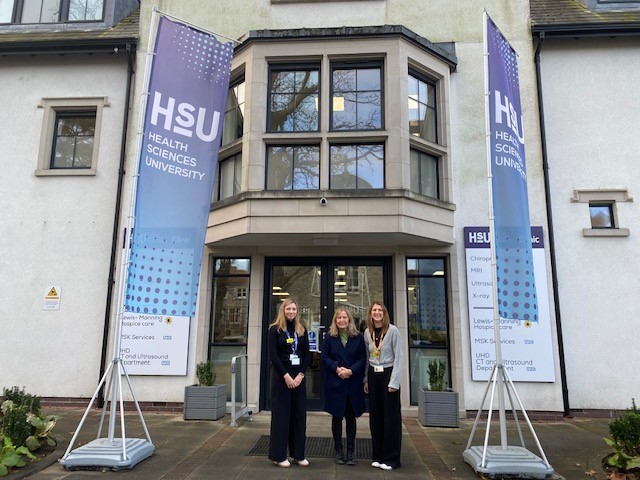
Health Sciences University, in collaboration with Dorset HealthCare, has launched a new Brain Health Clinic on its Bournemouth campus.

Carla tells us more about her experience of the course so far and what she enjoys about being part of the HSU community.
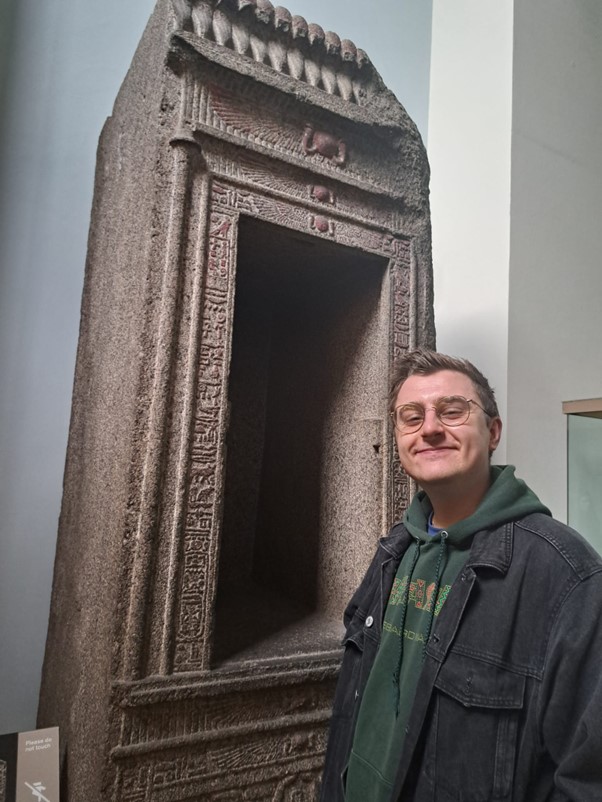
Dan Egelstaff is a First Year student on the MSc Occupational Therapy (pre-registration) course. The degree at Health Sciences University appealed to Dan when he was working as a Learning Disabilities Support Worker during the Covid-19 pandemic.
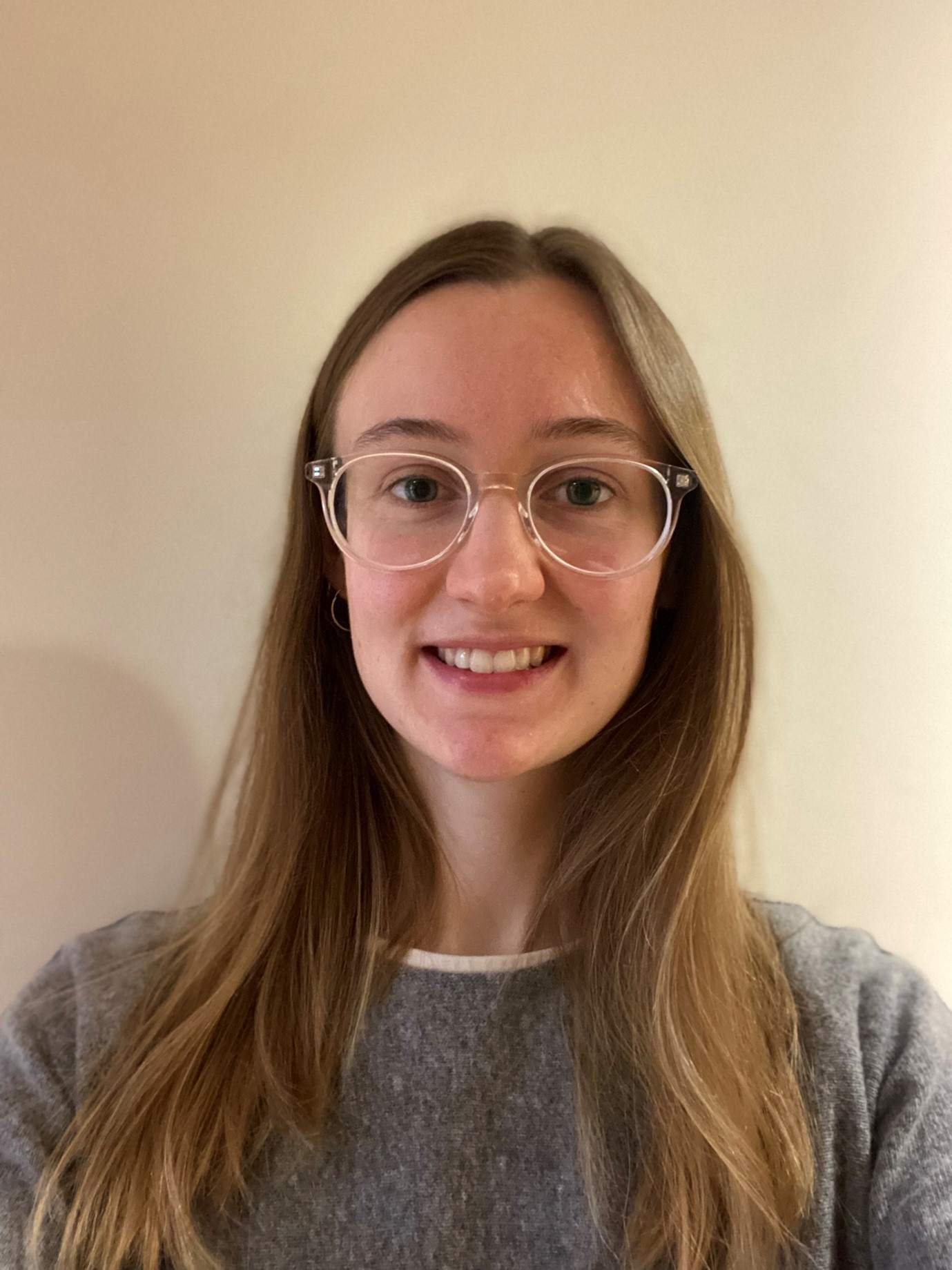
Natalia Purkiss is in her first year of the MSc Occupational Therapy (pre-registration) course at Health Sciences University.

